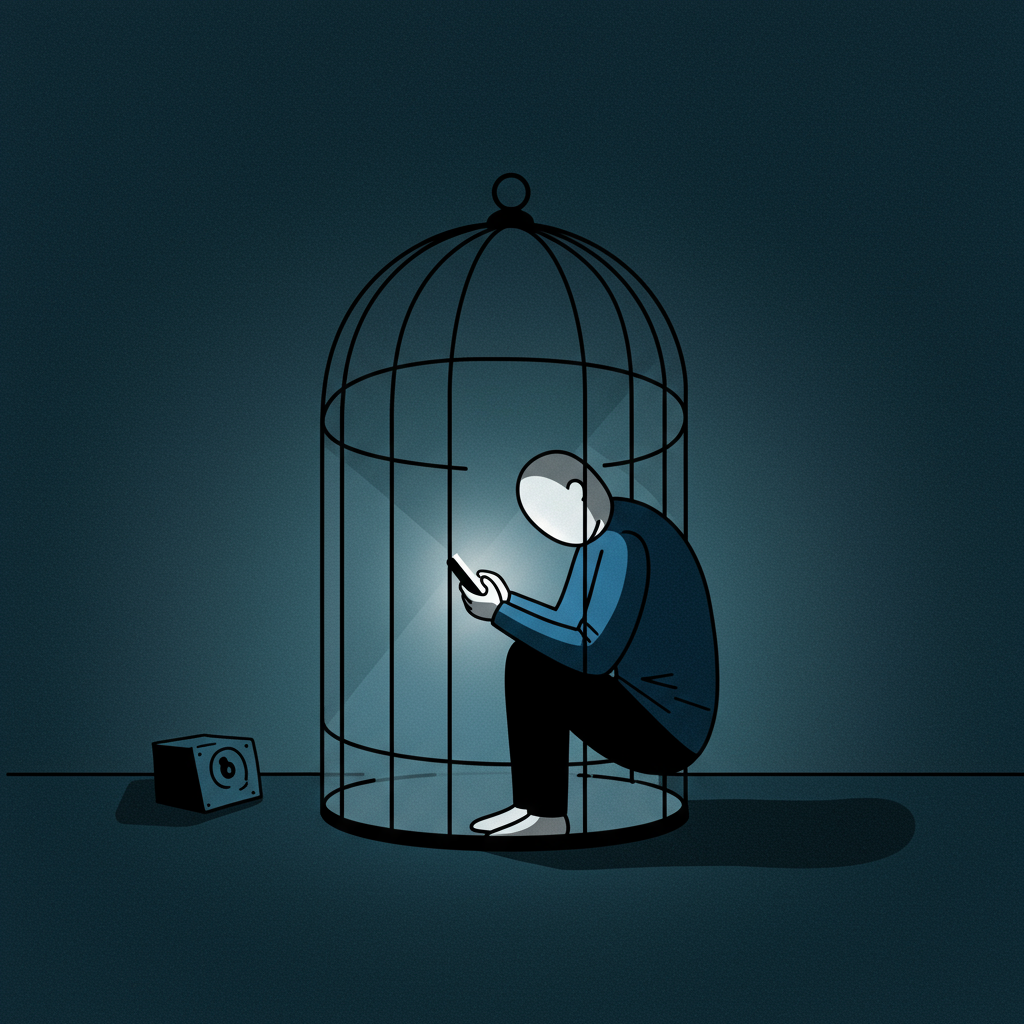Abusive Relationships—With Our Devices
Our tech relationships turn abusive. Endless scrolling, constant notifications chip away at lives, demanding attention away from loved ones. Apps, designed for engagement, create false community, isolating us. Like toxic individuals, they only seek your attention, not your well-being.

Several months ago, I watched the movie Alice, Darling. That same day, I wrote a draft reflecting on my perspective about abusive relationships—specifically those we form with technology. The movie addresses a serious subject, and it does so effectively. I won’t spoil it here, but I highly recommend watching it.
This essay isn't a review of the movie. Instead, it explores how its themes of abuse resonated with a pervasive, yet often overlooked, form of abuse: the one we experience daily with our technology. I know it may sound far-fetched, but bear with me.
One thought that struck me after watching the film was how our relationship with technology can also turn abusive and unhealthy. Bad habits, endless scrolling, constant notifications, and streaming can all chip away at our personal and professional lives. These demands for attention often persist even when we’re surrounded by people who deserve our full presence. When left unchecked, technology can become as harmful as an abusive person.
Our own habits allow these negative tech relationships to flourish—but don’t blame yourself entirely. Many apps and digital ecosystems are designed to keep us engaged, to create the illusion of community, all while distracting us from the real world, from the people we care about, and from meaningful, in-person experiences. Much like toxic individuals, these platforms make you believe they care, make you feel like everything else is the problem, and gradually isolate you. But the truth is, they don’t care about you—they only want your attention.
I know it may sound absurd to compare apps and devices to abusive partners, but they can function in similar ways. In today’s world, many of us give more attention to our screens than to the people right in front of us. We disconnect from our families, our partners, our children, our friends, even our own jobs and surroundings. It's happening constantly, all around us. And while it varies in intensity, most of us devote more time to technology than to the real-life humans and moments that truly matter.
So, what’s the solution? I believe the first step is awareness. We need to recognize that the phone in our hand is not our friend. Without clear boundaries, it can easily dominate our time—and ultimately, our lives.
Personally, I take small steps to resist this pull. For instance, when I sit down to eat, I keep my phone in my pocket. That simple action helps me stay present. I also work from home, so I create physical boundaries between my work and personal life. I never do personal tasks at my work desk. If I can, I set up my desk in a separate room and avoid going back in after I’ve finished for the day. When I’m with others, I make a conscious effort not to check my phone. I want to give the people in front of me my full attention—on purpose.
Don’t let technology take over your life. Use it—but don’t let it use you.
Have a great weekend!
